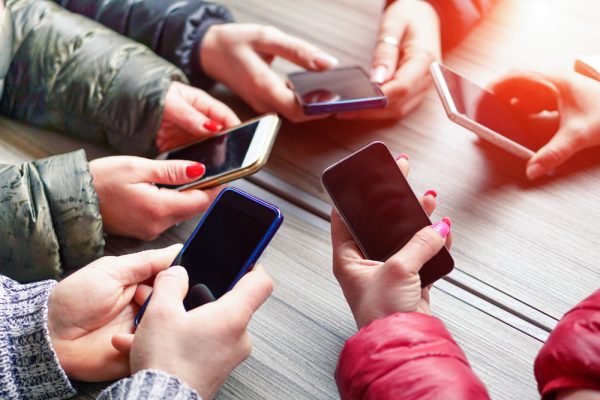
My teens are visiting their dad across the country right now in a home that has no wifi. This means that the 15GB of data we share among the three of us is now dangerously low, and we have two weeks left until the next billing cycle. To compensate, I had no choice but to turn off their data this morning.
“Can you just give me 10 minutes so I can let all my friends know I’ll be offline?” my son texted me. I allowed it. Now his Snapchat story has one of his friends taking over, helping my son to keep up with his “streaks,” and all his friends are on notice that he’s unavailable for a few more days. Because talking on the phone is not an option, and being without internet means he is basically invisible.
Welcome to Generation Z, otherwise known as iGen.
This morning’s exchange was fresh in my mind as I came across an article on The Atlantic titled “Have Smartphones Destroyed a Generation?”
“Born between 1995 and 2012, members of this generation are growing up with smartphones, have an Instagram account before they start high school, and do not remember a time before the internet.”
The article points out the differences between the youth of today, and what teens were doing 10, 20, 30 or more years ago. One of the major differences was in teen attitudes and behaviors. For example, earlier generations of teens were more social and outgoing. But today’s teens are most comfortable in their own room. On a positive note, a survey showed that teens of today are less likely to get into car accidents or use drugs or alcohol than the generations before. But teen depression and suicide has skyrocketed since 2011, around the time that smartphone ownership reached 50%.
“It’s not an exaggeration to describe iGen as being on the brink of the worst mental-health crisis in decades. Much of this deterioration can be traced to their phones,” the article shared.
Another difference includes waiting longer to take on adult responsibilities, including getting their driver’s licenses or getting a job.
“Teens, in turn, seem to be content with this homebody arrangement—not because they’re so studious, but because their social life is lived on their phone. They don’t need to leave home to spend time with their friends.”
You can read the rest of the article here.
Have you noticed a difference between today’s teens and the teens of earlier generations? What would you say is the most significant change? And how do you handle your teen’s phone use and screen time? Let me know in the comments.
Crissi Langwell is the author of several fiction and non-fiction books, and lives in Sonoma County with her husband, blended family of three teenagers and a ridiculous teenage dog. Find her at crissilangwell.com.










